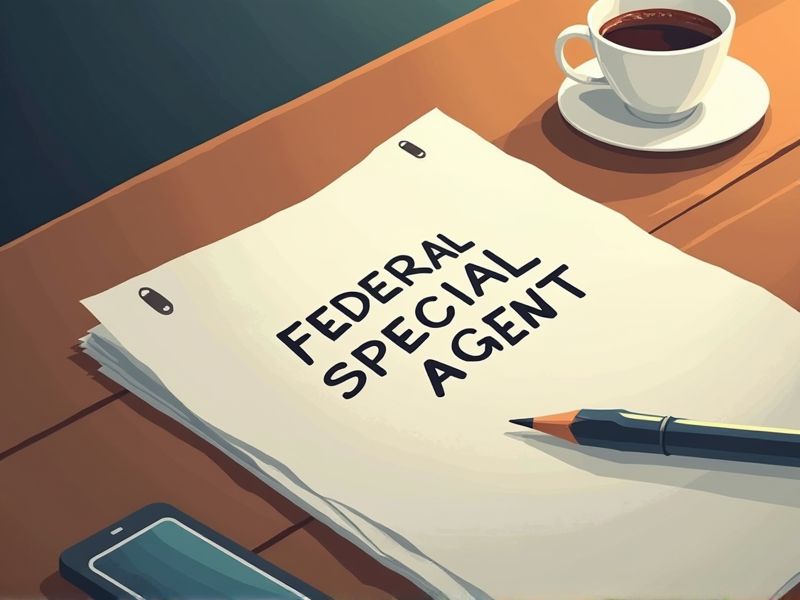
Federal Special Agents operate in roles that require highly specialized skills and knowledge due to the diverse nature of crimes they investigate. Without specific certifications, agents may lack the necessary expertise to effectively conduct investigations, gather evidence, and enforce federal laws. Certifications ensure that agents are equipped with current methodologies and compliance standards vital to national security and public safety. Here are some important certifications needed for a Federal Special Agent.
Federal Law Enforcement Training Certification
Federal law enforcement training certification ensures special agents are equipped with standardized skills required for national security. The certification process validates an agent's ability to handle complex criminal investigations, enhancing effectiveness in the field. It also fosters trust and accountability among the public and other law enforcement agencies. Furthermore, these certifications maintain uniformity in training protocols, which streamlines operations and collaboration across jurisdictions.
Certified Criminal Investigator
A Certified Criminal Investigator brings specialized forensic skills and knowledge that enhance the investigative capacity of a Federal Special Agent. Their expertise in crime scene analysis and evidence handling ensures that investigations are conducted thoroughly and accurately, which is crucial for maintaining the integrity of federal cases. With comprehensive understanding of legal procedures and criminal behavior, they assist in formulating effective case strategies that facilitate successful prosecutions. Employing Certified Criminal Investigators reduces the likelihood of overlooking critical details, thus strengthening national security efforts.
Cybercrime Investigation Certification
Cybercrime Investigation Certification equips federal special agents with the necessary skills to effectively combat the increasing prevalence of digital crimes. As cyber threats become more sophisticated, certification ensures agents possess updated knowledge of the latest cyber forensic tools and techniques. This specialized training aids in accurately identifying perpetrators and gathering admissible digital evidence for prosecution. The certification enhances the agency's overall operational capability to address and mitigate a broader spectrum of national security threats.
Intelligence Analysis Certification
Federal Special Agents often deal with complex and sensitive information; certification in intelligence analysis enhances their ability to process and interpret this data effectively. This specialized training provides agents with the skills to identify and mitigate potential threats. Intelligence Analysis Certification ensures that agents remain updated on the latest methodologies and tools in the field. This credential also contributes to maintaining high national security standards by fostering accuracy and critical thinking.
Crisis Negotiation Certification
Crisis Negotiation Certification equips Federal Special Agents with advanced communication techniques tailored for de-escalating high-stress situations. Without this certification, agents may lack the skills to effectively resolve hostage or barricade scenarios, putting lives at risk. Proper training enhances decision-making and equips agents to handle negotiations with psychological insights and tactical patience. Certified negotiators are statistically more successful in achieving peaceful resolutions, consequently reducing potential harm to civilians and law enforcement personnel.
Firearms Proficiency Certification
Firearms proficiency certification ensures federal special agents can accurately and safely use their weapons in high-stakes situations. Continuous training reduces the likelihood of accidental discharge, which mitigates risk to both agents and civilians. Mastery in handling firearms allows agents to effectively respond during critical incidents, enhancing overall operational success. Standardized certification aligns with federal regulations, maintaining consistency and accountability across agencies.
Defensive Tactics Certification
Federal Special Agents often face high-risk environments, which increases the likelihood of dangerous confrontations, necessitating proficient defensive tactics. Defensive Tactics Certification equips agents with essential skills to de-escalate threats and protect themselves and bystanders effectively. This certification ensures a standardized level of competence across all agents, enhancing operational cohesion and safety during interagency collaborations. Legal and policy requirements mandate such training to mitigate liability and ensure compliance with federal use-of-force protocols.
Digital Forensics Certification
Digital forensics certification enhances a Federal Special Agent's ability to handle complex cybercrime investigations effectively. Access to specialized training ensures agents can properly collect, preserve, and analyze digital evidence, adhering to both legal and procedural standards. Having a formal certification increases credibility and reliability in court, strengthening the prosecution's case. Rapid technological advancements necessitate continuous learning, and certification keeps agents updated on the latest forensic techniques and tools.
Surveillance and Undercover Operations Certification
Certification in surveillance and undercover operations equips federal special agents with advanced skills necessary to gather critical intelligence and evidence efficiently. This specialized training ensures agents can effectively respond to dynamic and potentially volatile situations while minimizing risks. Legal and ethical guidelines taught in the certification help maintain integrity and public trust in law enforcement operations. Mastery of these techniques supports the broader mission of national security and crime prevention.
Incident Command System (ICS) Certification
ICS Certification equips Federal Special Agents with a standardized approach to manage emergencies efficiently. This certification enhances inter-agency coordination by ensuring agents understand unified command structures. It enables agents to effectively allocate resources and manage personnel during critical incidents. As emergencies demand quick, organized responses, ICS training fosters skills that reduce chaos and improve operational success.
Summary
When you obtain certifications as a Federal Special Agent, your skills and knowledge expand, enhancing your effectiveness in the field. This improved expertise leads to increased operational success and greater professional recognition. Enhanced credibility through certifications often opens pathways for career advancement and specialization opportunities. Your heightened competency translates to more robust enforcement actions and improved outcomes in your assignments.
